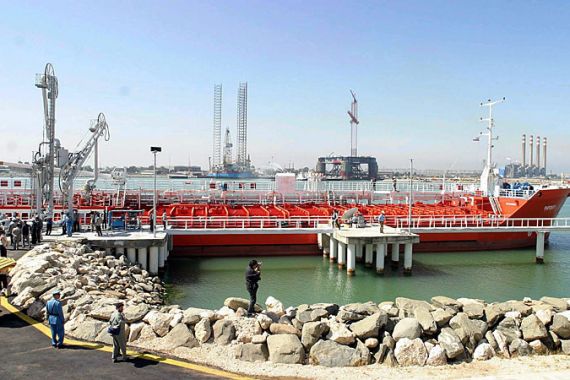
Banning Iran’s oil
Who stands to lose the most should the European Union go ahead with its decision to ban oil imports from Tehran?
The European Union (EU) has called it an “agreement in principle”.
|
“Somehow the world seems to look at Iran as the bogeyman, as a threat. They have made the whole media as if Iran is ready with bombs to sell. It’s not. It is just preparing and concentrating on fuels etc and there is [a] double standard. I see here an unfair campaign in the world against Iran.” – Manouchehr Takin, a senior energy analyst |
Members of the European bloc have said they will ban all oil imports from Iran – a move quickly shrugged off by Tehran.
Keep reading
list of 4 itemsAfter the Hurricane
World’s coral reefs face global bleaching crisis
Why is Germany maintaining economic ties with China?
Iran exports around 18 per cent of its oil to the EU, the second-biggest destination after China.
Though it remains unclear when the ban would start, and with oil revenues making up 80 per cent of Iran’s revenue, it is a move likely to hit the country’s economy hard.
Can Iran make up for the losses from this vital sector? And what would this ban mean for oil supplies to the EU?
Inside Story, with presenter Hazem Sika, discusses with guests: Michael Mann, a spokesperson for EU foreign policy chief Catherine Ashton; Mark Fitzpatrick, the director of the Non-Proliferation and Disarmament Programme at the International Institute for Strategic Studies; and Manouchehr Takin, a senior energy analyst at the Centre for Global Energy Studies.
|
“The impact will be much greater on Iran’s economy than Europe’s because only three European countries have significant oil purchases from Iran, and they are all arranging for alternative supplies. For Iran, however, nobody’s going to pick up the whole slack. This is the sanctions that, for the first time, will really bite the Iranian economy because it affects their main source of revenue” – Mark Fitzpatrick, Non-Proliferation and Disarmament Programme |